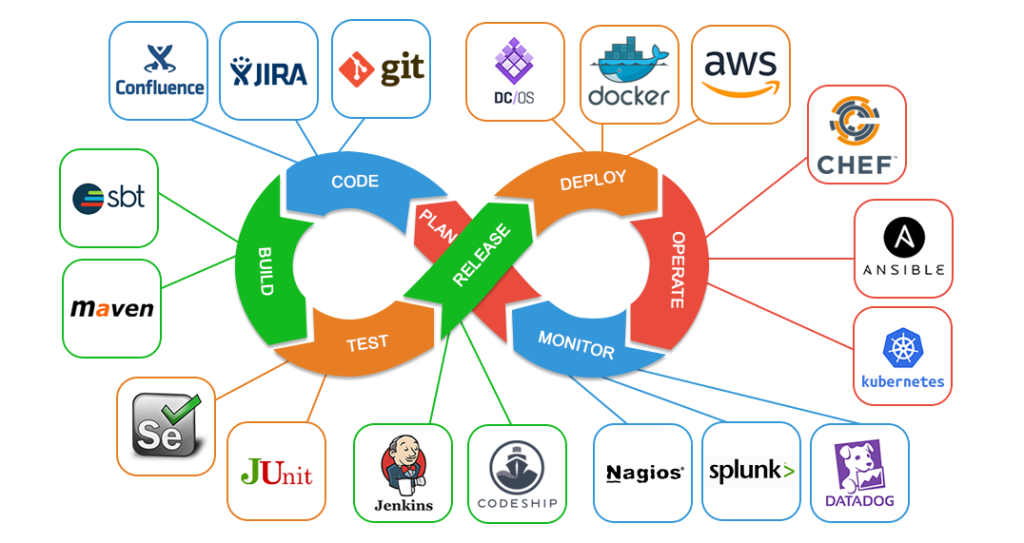
The landscape of deployment automation tools is vast and ever-evolving, catering to diverse needs and preferences. Here’s an overview of the top contenders in 2024, along with their key strengths:
All-rounders:
- Ansible: Renowned for its agentless architecture, rich ecosystem of modules, and YAML playbooks for easy scriptless automation.
- Jenkins: An open-source powerhouse offering extensive plugin integration and customization options for building robust CI/CD pipelines.
- GitLab CI/CD: Integrated into the GitLab platform, providing seamless code-to-deployment automation with built-in testing and monitoring.
Cloud-native champions:
- Kubernetes and Helm: Kubernetes, the container orchestration platform, paired with Helm for package management, offers powerful containerized deployments.
- Spinnaker: Designed for multi-cloud and hybrid deployments, Spinnaker excels in complex deployments across various environments.
- AWS CodeDeploy: A fully managed service for continuous deliveries on AWS, simplifying deployments to various AWS resources.
- Azure DevOps Pipelines: Built within the Azure ecosystem, Azure DevOps Pipelines integrates seamlessly with DevOps tools and services for Azure deployments.
- Google Cloud Deployment Manager: Automates infrastructure deployments on Google Cloud Platform, offering declarative configuration and rollback capabilities.
Simplicity and ease of use:
- Semaphore: Designed for rapid deployment cycles, Semaphore offers a user-friendly interface and visual pipelines for streamlined configuration.
- CircleCI: Known for its ease of use and Docker-based pipeline setups, CircleCI is popular for quick deployments and seamless integrations.
- DeployBot: Simple and direct repository deployments are DeployBot’s forte, making it ideal for teams seeking an approachable automation solution.
Continuous delivery focus:
- GoCD: Built for continuous delivery workflows, GoCD offers server-based pipelines with agent communication for various deployment targets.
- Octopus Deploy: Designed for complex application deployments, Octopus Deploy excels in managing and automating release processes with detailed configurations.
Factors to consider when selecting a deployment automation tool include:
- Complexity of your applications and infrastructure: Do you need to manage simple web apps or complex multi-cloud deployments?
- Team size and technical expertise: Is a user-friendly interface crucial, or do you have extensive experience with scripting and configuration?
- Cloud environment: Consider tools tailored to your specific cloud provider or open-source options for flexibility.
- Integration needs: Choose a tool that integrates seamlessly with your existing development and monitoring tools.
By carefully evaluating your specific needs and comparing the strengths of different tools, you can make an informed decision and leverage the power of deployment automation to streamline your software delivery process.
Latest posts by Rahul Singh (see all)
- Mutual of Omaha: Selection and Interview process, Questions/Answers - April 15, 2024
- AES: Selection and Interview process, Questions/Answers - April 15, 2024
- Amphenol: Selection and Interview process, Questions/Answers - April 15, 2024

